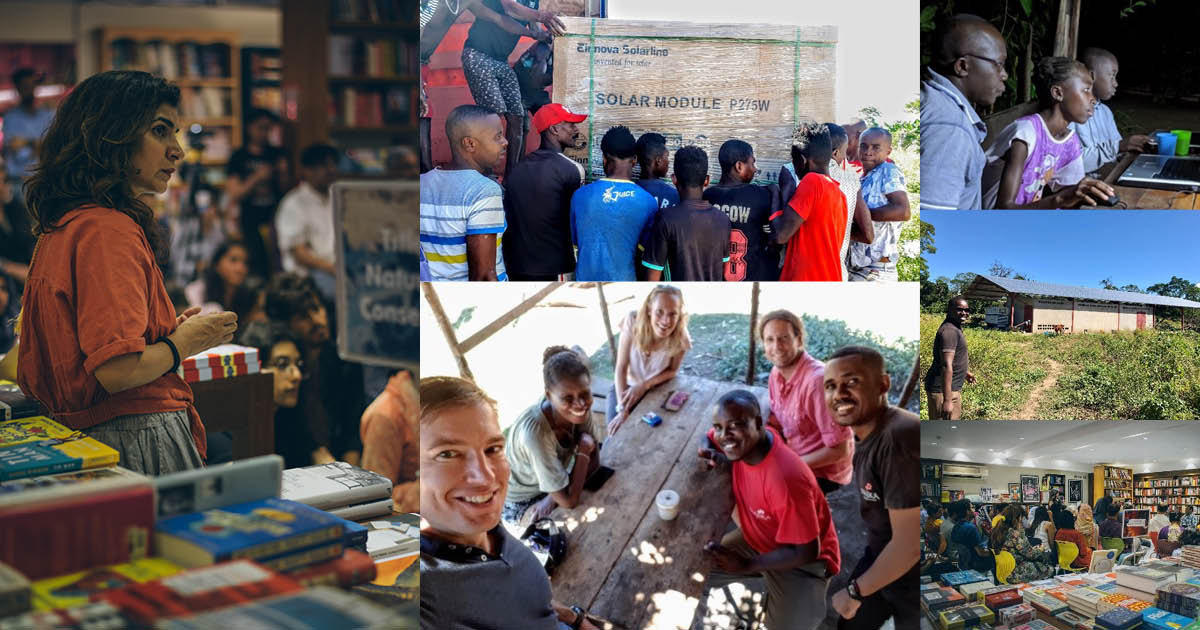Extreme Entrepreneurship and Why It Matters

In Lahore, Pakistan, during a wave of fundamentalist terrorism, a mother named Aysha keeps her bookstore running, selling Western secular titles, and, in doing so, defies unscrupulous businessmen, bullying, and outsiders’ stereotypes.
In Lima, Peru, during a civil war, a student named Liliana starts a pioneering school in the slums for kids with autism, cerebral palsy, and Down’s syndrome, eventually, over decades, helping thousands—locally and globally—to become more independent, productive, and happy.
Imagine an economically self-sustaining rainforest reforestation community in Colombia; or a solar-powered mini-grid in Madagascar, helping to relocalize economic activity; or a chef reviving pride in healthy, sustainable, and native cuisine in East Timor.
These all are just a few examples of extreme entrepreneurship that I discovered while researching and writing my book, Extreme Entrepreneurship: Inspiring Life and Business Lessons from Entrepreneurs and Startups Around the World.
What Is Extreme Entrepreneurship?
While there is no official definition of extreme entrepreneurship, all of the protagonists in my book started with a scarcity of resources, often faced nasty obstacles such as conflict or poverty, and succeeded in bringing about positive change to those around them.
As described in the book, the contexts may be unfamiliar, but these examples offer universally applicable lessons.
First, extreme entrepreneurs simply start, often with a surprising lack of planning. Not being intimidated or limited by what is unknown, or having no blueprint or model to follow, they often make progress by trial and error and refining and iterating.
Next, they tend to be more motivated by a drive to solve a problem for others, rather than by the pursuit of money alone. That sense of mission—combined with grit, consistent effort, asking for help, and a positive mindset open to serendipitous opportunities—can result in support, then financial sustainability, and maybe even profitability, assuming they decide to run their venture as a business.
Understanding Other Realities
Most people in the world are not native to the United States; about 96% of people on the planet aren’t American. Therefore, as entrepreneurs, citizens, and educators engaged in the world, it is imperative to understand other perspectives and other circumstances.
That’s why I began traveling the world more after entering academia full time in 2005: to better understand the world and be better equipped to teach, especially in classrooms where a sizable percentage (if not a large majority) of students are not from the United States. Since then, I’ve visited 122 countries.
Along the way, commonalities between the stories of extreme entrepreneurship and the process of collecting these stories emerged. First, as just described, it helped to be purpose-driven: to want to understand and communicate something useful.
Further, it became clear that it was better to spend more time doing rather than planning, to ask for help, and to adapt and keep going even when things fail and look bleak.
One last common factor that cannot be overemphasized: In both the stories in my book and in the process of gathering them, it turns out that it is invaluable to be open to serendipity. In other words, it helps to maintain a mindset of openness to discover the next big breakthrough, anytime, and sometimes thanks to unexpected sources.
Posted in Entrepreneurial Leadership, Insights






